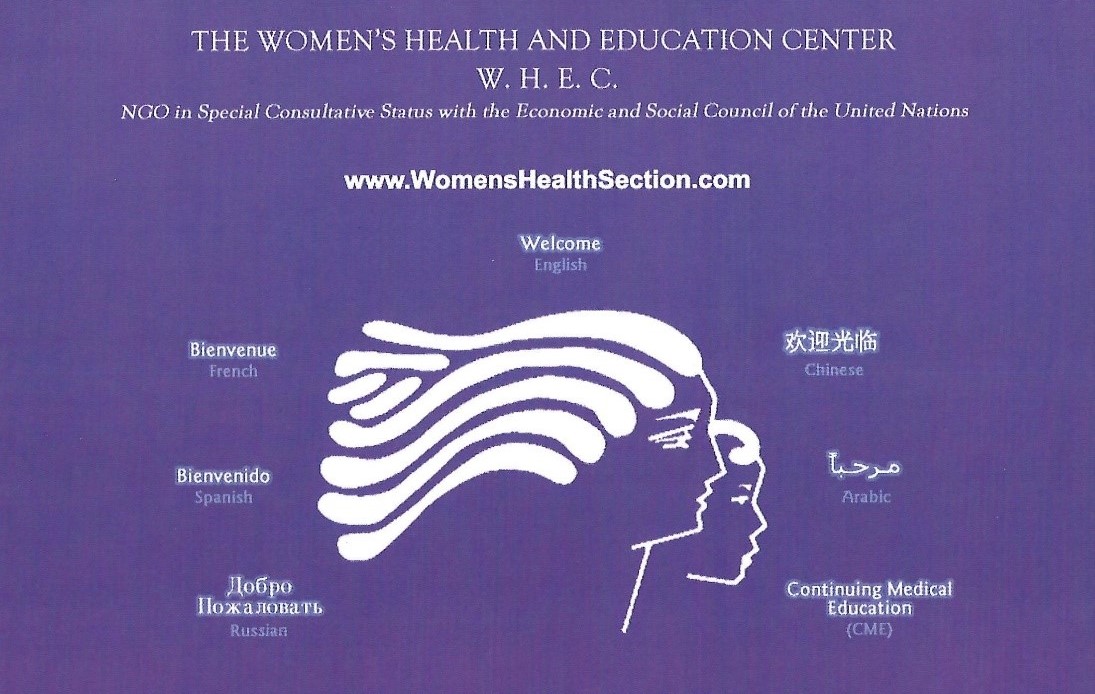
All over the world we all provide care to a multicultural society. Imagine students in developing and developed countries simultaneously reviewing the same medical education and learning from each other. That is e-learning at its best in an Internet Classroom, and with this goal the Women’s Health and Education Center (WHEC) and the Department of Public Information of the United Nations (UN) had launched www.WomensHealthSection.com on 24 October 2002. By interacting with different cultures, we will be able to understand different customs, cultures and faiths, and learn to respect – the diversity.
WHEC’s collaboration with the World Health Organization (WHO) and WHO Academy is creating new opportunities to accelerate progress towards health-for-all in every country. With multiple solutions, like with the WHO Academy, there is a new focus on learning and building competencies, bringing life-long learning opportunities. The WHEC Global Health Line (WGHL), launched in collaboration with Reproductive Health Research (RHR) division of the WHO, in 2013, is freely accessible in 227 countries and territories, about 14 million visitors every year. WGHL is an e-Health platform with special focus on maternal and child health. The platform disseminates knowledge to the international community in public health, helping it to sharpen its focus and act more effectively. It is a grand collaboration and available in six official languages of the United Nations.
valium order buy tramadol tramadol on line pharmacy
With special attention to the health and status of women, maternal mortality and morbidity, projects like, LINK (Learning, Innovating, Networking for Knowledge) encourage National Academic Societies to contribute to continued education, and not only of their own professions and specialties but also of all providers of maternal and child health and family planning care, and especially those at the primary referral level. WHEC supports capacity building for e-Health and e-Governments applications worldwide and look forward to development and the use of norms and standards.
order ambien overnight cbd gummies for sale order soma online
WHEC’s strategy on e-Health and e-Governments focuses on strengthening health and education systems in countries; fostering public-private partnerships in information and communication technologies, research, and development for health and education. Proceeding in this way, that not only strengthens capacity, but also preserves cultural integrity and increases the access to revolutionizing technologies, for those who need it most, must remain the goal.
We believe, on this path efforts never go to waste, and there is no failure.

Mother and child in Uganda
Photo credit: UN Chronicle, 2007

Empowering women through education

By Rita Luthra; Published by UN Chronicle 2005.

Education improves Health. Investing in our children’s education is the way forward.
For more information, please visit: http://www.womenshealthsection.com/
 Welcome to the United Nations
Welcome to the United Nations